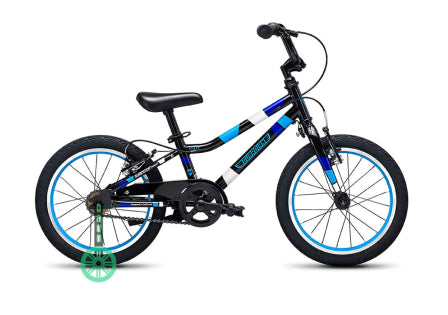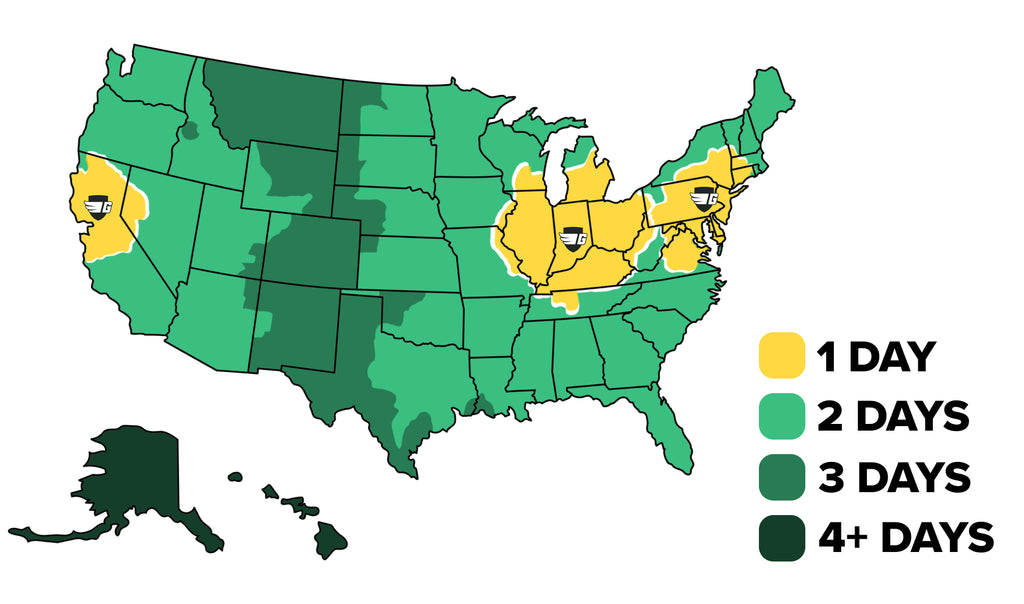9 Tips For Building Confidence in Kids
Building Confidence Quick Links:
- Why do some kids have low self-esteem?
- Top 9 confidence-building tips for kids
- Put those tips into practice
- How Guardian Bikes build confidence
9 Tips For Building Confidence in Kids
Every kid deserves to feel good about themselves. Building confidence and self-esteem at a young age is vital for a child’s interpersonal relationships, self-image, and eventual success in school and work.
Sounds great, doesn’t it? Unfortunately, as we all know, even adults can struggle to feel confident in their daily lives. How do you instill confidence in your kids?
In this guide, we’ll review the fundamentals of self-esteem and confidence issues, learn what causes low self-esteem in children, and explore top tips for building your kid’s confidence.
What is self-esteem?
Self-esteem is simply knowing yourself, liking yourself, and feeling good about your choices. Confidence and self-esteem go hand in hand. When a child values themselves, their approach to life is more positive and they’re more likely to ask for help when they struggle.
In other words, good self-esteem is essential. It stems from:
- Tackling new challenges
- Spending quality time with friends and family
- Discovering talents, strengths, and favorite activities
- Receiving recognition for activities and traits that are important to us
- Knowing we are loved and valued by family, friends, and community
When a child regards themselves more highly, they feel more confident and capable in their everyday lives. Good self-esteem in children promotes their core traits and abilities, including:
- Self-respect
- Independence
- Healthy risk-taking
- Standing up for themselves
- Confidence in problem-solving
- Asking for help when they need it
- Accountability and responsibility for their actions
- Confidence in social situations
- Resilience in the face of failure
- Better decision-making skills
- Resistance to peer pressure
- Security in relationships
Why do some kids have low self-esteem?
While every child is unique, certain comments and actions from parents are very likely to damage a child’s confidence and self-esteem. To ensure your child loves themselves and feels valued, here are some common pitfalls to avoid:
These well-intentioned (and all-too-common) parenting mistakes are easy to slip into. Focus on active strategies for building confidence in your kids, and don’t hesitate to talk to a mental healthcare professional if you think it could benefit your child.
Top 9 confidence-building tips for kids
Without further ado, here are nine tips for building your kid’s confidence, strengthening their self-esteem, and giving them the tools they need to succeed:
- Don’t baby your babies
- Compliment with caution
- Be constructive
- Let them solve problems
- Cultivate a growth mindset
- Teach smart goal-setting
- Screens off!
- Fail by example
- Encourage exploration
#1: Don’t baby your babies
We know - this one’s a toughie. It’s crucial not to make everything in your child’s daily life easier. This will (weirdly enough) make your child’s life easier in the long run! After all, hardships are a part of life, and kids have to tackle their own share. Here are a few of your own behaviors to focus on:
- Avoid giving your kids special treatment: According to Dr. Carl Pickhardt, psychologist and author, this behavior actually communicates a lack of confidence in kids’ abilities.
- Don’t create shortcuts or reduce kids’ tasks: Instead, show them the benefits of hard work, actionable goal setting, time management, and conquering challenges.
- Let them help themselves first: Don’t immediately jump in to help your kid when they’re struggling with homework, chores, or friendships. Instead, foster self-help skills by discussing their problem and guiding them through problem-solving strategies.
#2: Compliment with caution
It might be tempting to treat everything your child does as an incredible achievement. However, this can actually backfire.
Like everything else, encouragement is healthy in moderation. If children get used to hearing constant praise, they may have a hard time distinguishing which accomplishments are worth cheering for. Avoid congratulating them for doing chores and taking care of basic responsibilities - things they should do without expecting praise.
Constant, indiscriminate praise reduces the weight of the wins that actually matter, potentially damaging your child’s trust in adults. Kids have a great sense of what they worked hard for - try your best to identify those accomplishments and give them the “Good job!” they deserve.
#3: Be constructive
Of course, being moderate with your praise doesn’t mean that you should criticize your child instead. In fact, a negative, non-constructive critique of your kid’s performance hurts their self-esteem and personal development. Here are some quick tips to staying constructive with your criticism:
- Don’t express your worries about them: Kids can misinterpret this kind of concern as a lack of confidence. Keep it to yourself and focus on productive improvement strategies instead.
- Treat missteps like stepping stones: Mistakes should be a source of learning, not an ultimate failure. Debrief with your kid on their mistakes and set goals for their next attempt.
#4: Let them solve problems
Learning to succeed is about overcoming obstacles, not avoiding them. So while it’s completely natural to want to protect your child from discouragement, pain, and failure, learning when to step back is a crucial parenting skill. After all, if we’re completely insulated from making (and solving) our own problems, learning from them is impossible.
#5: Cultivate a growth mindset
“Growth mindset” is a bit of a corporate buzzword - but it’s also a powerful tool for child-rearing. Ask yourself: Does your child believe that their talents are innate gifts or the result of hard work and smart decisions? It’s an important distinction because children in the latter group will likely worry less about looking smart and put more effort into the learning process. That’s a growth mindset, according to the Harvard Business Review.
To cultivate this healthy attitude in your kids, don’t just praise their effort. Emphasize the process by which they develop, such as “seeking help from others, trying new strategies, and capitalizing on setbacks to move forward effectively.”
#6: Teach smart goal-setting
Encourage your children to set realistic goals to avoid the disappointment of taking on impossible tasks and failing. After all, mastery and competence can only be achieved through attainable baby steps, strategizing, and practicing.
Not sure whether a goal is smart? Check whether it’s S.M.A.R.T:
- S - Specific
- M - Measurable
- A - Achievable
- R - Relevant
- T - Time-bound
#7: Screens off!
Mobile technology is built to be addictive, and kids (like the rest of us) spend an unprecedented amount of time staring at screens every day. While these devices are an important way of staying connected, being creative, and socializing, they can also be an unhealthy escape from the outside world.
Try your best to limit screen time in the household by introducing regular physical activity into your kid’s routine. Not only do sports and exercise increase confidence, but they also improve kids’ physical and mental health. For many of us, joining a sports team or biking with friends is a far better way to socialize than chatting on the internet.
#8: Fail by example
It’s good to be a successful role model for your kid - from walking them through chores and sharing hobbies to building strong relationships with other people. It’s just as important to show your kids how you don’t succeed. Share mistakes and let-downs with your children (in an age-appropriate way), so they can see how you stay resilient and learn from your failures.
A psychology professor, Dr. Kathy Hirsh-Pasek says, “Seeing you mess up and not make a big deal about it will make little kids feel so much better.” Use this time as a growing opportunity (and practice confidence-boosting strategies for yourself, while you’re at it!).
#9: Encourage exploration
Allow your child to embrace new experiences, explore independence, and discover the joy of learning. Remember - they have their own tastes and preferences, and might end up pursuing interests that are foreign to you!
Activities like bike riding, group activities, and socializing are wonderful things to do outside with kids and allow them to meet new people. For a youngster who’s developing their unique personality and building self-respect, exploration is critical.
Put those tips into practice
On top of engaging in more mindful parenting, you should also bring confidence-building activities for kids into your everyday life. Here are three everyday practices that will help your child grow in confidence:
Nudge kids out of their comfort zone
Interacting with new people and practicing empathy helps shape your child’s worldview, widen their perspective, and strengthen their sense of identity. Community engagement like drama club, group camping, traveling, and volunteering fortify your kid’s sense of belonging while building their feelings of self-worth and purpose.
Sign them up on a sports team
Playing sports with other children gives your kids a fun social outlet that is also fulfilling. Team sports are a perfect place for youngsters to:
- Learn from mistakes
- Deal with failure
- Practice self-improvement
- Master a skill
- Build new relationships
A positive sports environment will help your kid develop their confidence and self-worth while gaining new skills for the future (and possibly even a career).
Encourage them to ride a bike
Riding a bike is the perfect activity for kids to build confidence, improve fitness, and foster independence. Plus, whether they’re by themselves or together with the whole family, a bike offers plenty of fun summer games for kids. They can explore the world around them, creating neighborhood scavenger hunts, or work on their balance as they learn.
Unfortunately, not all kids’ bikes are created equal. Riding the wrong bike might hinder your child’s confidence. Here’s how:
- Many mass-produced bikes are designed more for affordability than for comfort and safety. These bikes are hard to handle and might even be dangerous. (Poorly designed bikes can mean poorly designed brakes, which is never good news.)
- Riding a bike is a workout. The bike shouldn’t be so heavy that riding becomes impossible. Heavy bikes can turn a fun hobby into a discouraging slog.
Some parents think their child isn’t suited for bikes when they get tired and frustrated quickly. Unfortunately, this is just one major downside of a mass-produced, heavy bike.
How Guardian Bikes build confidence
Guardian Bikes are built to be incredibly safe kids’ bicycles. Here are a few key differences between our bikes and the store-bought brands:
- SureStop Brakes: Our patented brake design reduces stopping distances while preventing scary braking-related accidents like front-wheel skidding and head-over-handlebar falls.
- Kid-approved styles: Guardian Bikes are made for kids and designed by kids. This ensures every child finds a design they love, made with their safety in mind.
- Lightweight: Our frames are designed to be as light as possible, using materials like aircraft-grade aluminum. This ensures that young children can ride up hills and maintain control and balance of their bike with confidence.
- Fits just right: With our incredibly easy sizing tool and diverse array of frames, every kid will find a bike that fits perfectly. Plus, the sizing tool tells you how long the bike lasts before they grow out of it.
- Better bike geometry: A wider wheelbase offers better balance, while smaller levers and handgrips give kids more control. This ensures they have the assistance they need to bike with confidence.
Self-confidence is a work in progress for kids, just like it is for adults. Don’t fret! With mindful parenting, some time-tested wisdom, and the perfect kids’ bike, you can help your little ones get the confidence boost they need.

Sources:
Business Insider. A psychologist says parents should do these 18 things to raise a more confident child. https://www.businessinsider.com/psychologist-explains-how-to-raise-a-more-confident-child-2016-11
Harvard Business Review. What Having a Growth Mindset Actually Means. https://hbr.org/2016/01/what-having-a-growth-mindset-actually-means
HelpGuide. Volunteering and its Surprising Benefits. https://www.helpguide.org/articles/healthy-living/volunteering-and-its-surprising-benefits.htm#:~:text=Volunteering%20increases%20self%2Dconfidence.&text=Your%20role%20as%20a%20volunteer,your%20life%20and%20future%20goals.
MindTools Toolkit. Smart Goals. https://www.mindtools.com/pages/article/smart-goals.htm
Parents. 9 Secrets of Confident Kids. https://www.parents.com/toddlers-preschoolers/development/fear/secrets-of-confident-kids/
Raising Children. About self-esteem: children 1-8 years. https://raisingchildren.net.au/toddlers/behaviour/understanding-behaviour/about-self-esteem.
Understood.org. The Importance of Self-Esteem for Kids. https://www.understood.org/en/friends-feelings/empowering-your-child/self-esteem/the-importance-of-positive-self-esteem-for-kids







